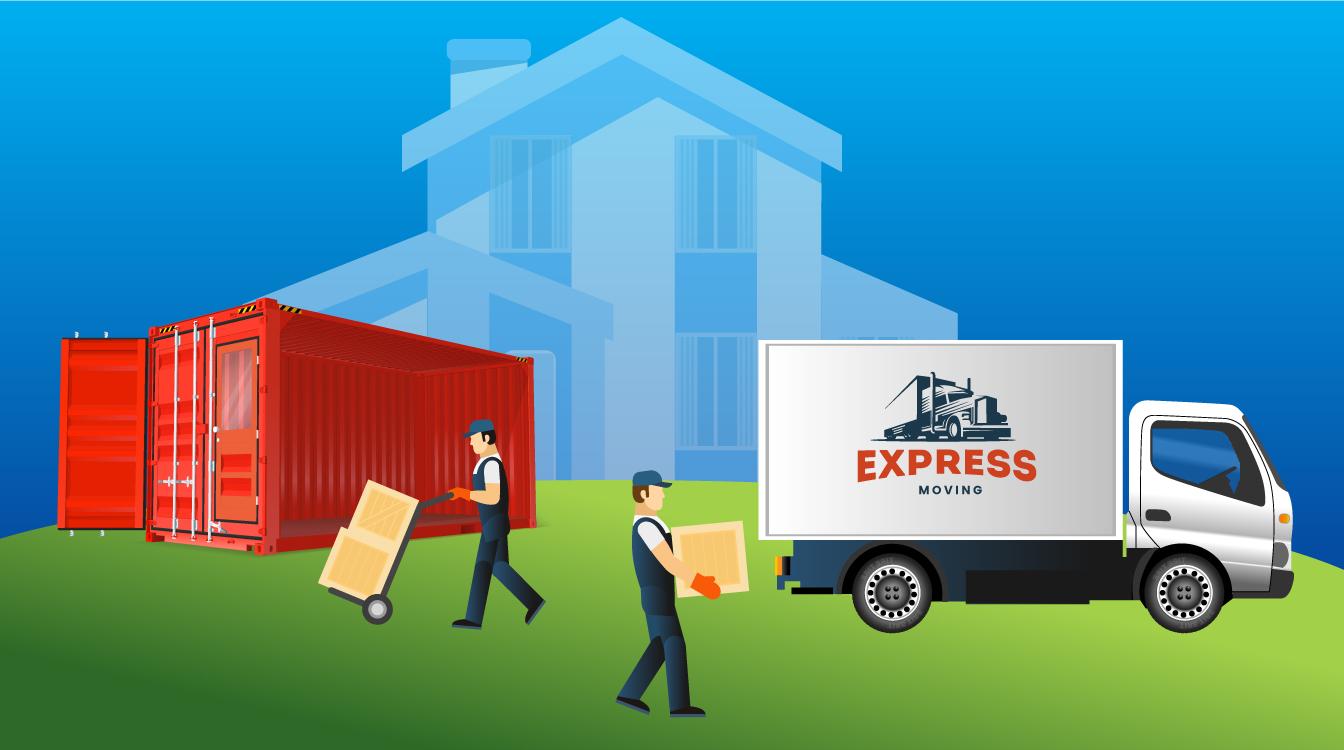Movers For Pool Tables: Ways to Prepare for a Relocation with Expert Movers
Movers With Lifting Equipment: Specialist Relocation Experts Can Assist Make Your Transition Smooth And Hassle-free
History and Evolution of Moving Services
The Dawn of Moving: From Muscle to Devices
Picture this: a handful of strong guys transporting heavy trunks on wooden carts, navigating cobblestone streets with sweat and determination. Before the contemporary moving industry took shape, moving was a harsh, labor-intensive task. In ancient times, moving typically meant relying on large physical strength and simple tools. The lack of specialized services meant households and merchants needed to coordinate every detail themselves, frequently running the risk of damage or loss.
Isn't it interesting how need fuels innovation? As cities expanded and commerce flourished, the requirement for effective, trustworthy moving services became glaringly apparent. Enter the age of horse-drawn wagons and later on, motorized vehicles, which revolutionized how valuables took a trip from one location to another.
Industrial Revolution: The Driver for Modification
The 19th century's industrial boom reshaped many elements of life, consisting of how individuals moved. All of a sudden, metropolitan migration rose, and with it, the demand for professional movers escalated. No longer was moving a simple task; it evolved into a specific service offering:
- Packaging expertise to safeguard fragile items
- Organized filling methods taking full advantage of area
- Transportation options customized to different ranges
This period marked the birth of business devoted entirely to moving, laying the foundation for today's complex logistics and customer-centric approaches.
Technological Improvements and Their Impact
Can you think of moving without contemporary equipment? The introduction of hydraulic lifts, forklifts, and pallet jacks changed the industry overnight. Suddenly, movers could manage bulky furnishings and heavy devices with ease, lowering injuries and enhancing efficiency.
The integration of digital technology stimulated a new wave of innovation. GPS tracking, online reservation platforms, and real-time inventory management have ended up being staples in the moving services landscape. These tools not just boost openness but also empower customers to remain connected and informed throughout their moving journey.
Secret Turning Points in Moving Services Advancement
| Age | Development | Significance |
|---|---|---|
| Ancient Times | Manual work and standard carts | Structure of moving as a requirement |
| 19th Century | Horse-drawn wagons and packing services | Birth of professional moving business |
| 20th Century | Motorized trucks and mechanized devices | Increased effectiveness and scale |
| 21st Century | Digital integration and GPS innovation | Improved consumer experience and logistics |
Reflections on the Journey
Reviewing the advancement of movers, one might wonder: how did a simple act of transferring personal belongings become an advanced market? It's a tale of strength, adaptation, and constant improvement. From the sweat-soaked streets of old to the precision-driven operations these days, the history of moving services is as dynamic as the people who rely on them.
Next time you pack a box or work with a mover, consider the layers of history embedded in every step. The journey of movers encapsulates human resourcefulness, changing what was as soon as a challenging task into a smooth experience.
Checking out the Spectrum of Moving Solutions
When the time pertains to shift your life from one address to another, the variety of moving services available can feel like navigating a maze. Do you require an easy loading and dumping team, or does your move need the skill of full packing and unpacking? Comprehending the subtleties can save hours of frustration and unforeseen expenses.
Common Kinds Of Moving Solutions
- Regional Moves: Developed for relocations within a city or city, these services generally run on a hourly basis, ideal for brief ranges.
- Long-Distance Relocations: Covering moves beyond 100 miles, these need more coordination, from logistical preparation to secure transport, frequently priced by weight and distance.
- Full-Service Moves: Movers handle everything-- packaging, packing, transferring, discharging, and in some cases even unloading. Suitable for those pushed for time or energy.
- Self-Service Moves: You load and pack your personal belongings, while the business manages transport and discharging. A happy medium offering cost savings and some benefit.
- Specialized Moves: For delicate, bulky, or important items like pianos, antiques, or art work, needing customized equipment and proficiency.
Professional Tips to Navigate Your Moving Service Choices
- Prioritize Flexibility: Choose a service that adapts to unanticipated hold-ups or last-minute changes-- rigid schedules can turn a smooth relocation into a logistical headache.
- Check Insurance Coverage Options: Not all moving business offer the very same level of protection. Understanding your protection can prevent heartache if something goes awry.
- Demand Comprehensive Inventories: An accurate item list prevents disputes and makes sure responsibility, particularly when dealing with long-distance or specialized relocations.
- Think About Time of Year: Seasonal need can affect availability and prices. Early reserving during off-peak seasons may grant much better service and flexibility.
- Ask About Packing Materials: High-quality boxes, bubble wrap, and padding can be the difference between a scratched heirloom and a beautiful arrival.
Table: Service Characteristic Compared
| Service Type | Who Loads? | Transportation Mode | Typical Prices Model | Ideal For |
|---|---|---|---|---|
| Regional Move | Client or Movers | Truck | Hourly | Short ranges, small loads |
| Long-Distance Move | Movers | Truck or Container | Weight & & Range | Cross-state or local moving |
| Full-Service Move | Movers | Truck | Flat or Weight-Based | Time-sensitive, high-stress moves |
| Self-Service Move | Consumer | Truck or Container | Flat or Per hour | Cost-conscious, hands-on movers |
| Specialty Move | Movers with proficiency | Specialized Devices | Custom Quote | Vulnerable or important products |
The Unseen Complexity Behind Each Option
Have you ever questioned why moving appears uncomplicated on tv however becomes a waterfall of last-minute choices in genuine life? The truth depends on the complexities of each service type. For instance, full-service moves might look like a high-end, but the proficiency involved in packaging fragile heirlooms or taking apart bulky furniture is a craft honed over years. Meanwhile, choosing a self-service relocation might save money, however it requires a keen understanding of how to pack efficiently-- did you understand that stacking unusually shaped boxes incorrectly can cause internal shifting throughout transit, wrecking vulnerable contents?
Picking the right type of moving service is not almost benefit-- it's about protecting your memories and financial investments. What's your move's story going to be?

Packaging and Moving Techniques
Ever tried to fit a suitcase that simply won't close? That's the kind of puzzle professional movers fix daily-- but on a much bigger scale. The secret lies not in strength but in tactical placement and smart usage of space. Packaging isn't merely about packing items into boxes; it's an art type where every inch counts.
Layering for Success
Imagine a painter layering colors to create depth. Likewise, when packaging, start with much heavier items at the bottom, then cushion with softer products like bubble wrap or towels. This avoids damage and makes the most of box stability. Unusually formed products can slip into gaps, lowering squandered area.
- Wrap fragile items separately with tissue or foam to prevent scratches.
- Usage clothes as cushioning-- it's both efficient and environmentally friendly.
- Fill empty spaces with packing peanuts or crumpled paper to minimize motion.
Labeling: The Unsung Hero

What great is perfect packing if you spend hours searching through boxes? Detailed labeling is a game-changer. Instead of vague tags like "Cooking area," attempt this technique:
| Label | Description | Priority |
|---|---|---|
| Delicate - Glass wares | Manage with care, contains fragile products | High |
| Essentials - Opening Night | Items needed right away after moving | Urgent |
| Books - Study Room | Stacked, heavy books | Medium |
Strategic Packing Tips
- Take apart large furnishings and keep screws in identified bags taped to the pieces.
- Usage uniform box sizes when possible-- stacking ends up being much easier and more secure.
- Don't overpack boxes; weight limits exist for a reason. Objective for 40-50 pounds max.
- Wrap furniture edges with moving blankets to prevent scratches during transit.
- Seal boxes with premium packing tape-- double layers on the bottom are vital.
Why do some movers swear by a color-coded system? Because it removes uncertainty on moving day. Appoint each space a color and mark boxes accordingly. This small step can save hours when discharging and unpacking.
Packing and moving need precision-- like a chess game where every relocation counts. Have you ever discovered how some movers deal with large items effortlessly? They utilize angles and pivot indicate browse tight corners without damage. It's not muscle; it's strategy.
Hidden Struggles Behind the Moving Van Doors
Ever watched a group of expert movers carry a grand piano through a narrow entrance and questioned how they pull it off without a scratch? The art of moving isn't just muscle and trucks; it's a delicate dance with unpredictability. Weather condition can turn get more info from a sunlit blessing to a torrential menace in minutes, turning an uncomplicated drive into a logistical labyrinth.
One notorious hurdle is the labyrinthine layout of some homes or houses. Staircases too tight for dollies, doorways narrower than standard boxes, or elevators that hardly fit a couch-- these physical peculiarities demand inventive options on the spot. Movers frequently turn to non-traditional techniques like taking apart furnishings or using personalized cushioning to secure both the product and the residential or commercial property.
Accuracy Packing: More Than Just Wrapping
It's tempting to think packaging is simply packing boxes, however the reality is a complex puzzle of weight distribution and fragility. Movers must anticipate how items will move throughout transit-- a mistake can indicate shattered treasures or dented home appliances. The trump card? Strategic layering and using products with specific shock-absorbing qualities.
- Bubble wrap is basic, however alternating it with foam sheets can drastically reduce effect damage.
- Heavy items go at the bottom; vulnerable ones nestle on top, cushioned by soft fabrics.
- Labeling boxes not just by contents however by managing directions guarantees quicker, safer discharging.
Another less discussed pressure is the mental toll. The clock ticks non-stop, and every delay ripples through tight schedules. Remaining calm amidst disorderly last-minute changes requires imagination and group synergy.
Traffic Jams and Timing: The Invisible Opponents
| Obstacle | Specialist Technique | Effect |
|---|---|---|
| Urban blockage | Path optimization apps and flexible scheduling | Decreases hold-ups and fuel consumption |
| Parking constraints | Pre-arranged permits or strategic parking nearby | Prevents fines and time loss |
| Unforeseeable weather condition | Water resistant coverings and contingency strategies | Protects the condition of goods and equipment |
Do you truly know what it requires to keep a moving day on track? It's not simply about strength or endurance; it's about insight, versatility, and a deep understanding of every piece of the puzzle. The next time you see movers at work, remember: behind that smooth operation lies a series of calculated maneuvers and fast thinking that few ever notice.